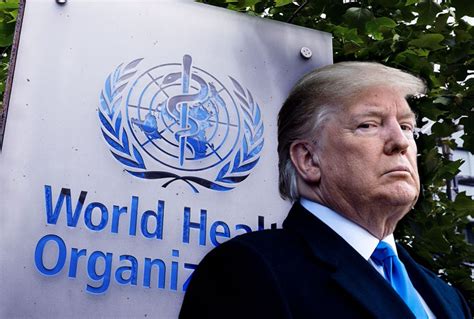President Trump made a bold and swift decision that sent shockwaves through the global health community. On a seemingly ordinary day in January 2025, just hours after taking his oath of office, he signed an executive order to withdraw the United States from the esteemed World Health Organization (WHO). This move was not merely administrative but carried significant implications for public health initiatives both domestically and internationally.
Public health experts, who have been closely monitoring the situation, are deeply concerned about this development. They fear that the U.S.’s departure from the WHO could seriously jeopardize its position as a leader in global health efforts. Moreover, it might pose challenges in combating future pandemics effectively.
What Led to This Decision?
In his executive order, President Trump highlighted several reasons for pulling out of the WHO. He criticized the organization’s handling of the COVID-19 pandemic and lamented its alleged failure to implement necessary reforms promptly. One key point of contention was what he perceived as exorbitant financial demands placed on the United States compared to other countries like China.
The president’s dissatisfaction with the WHO is not new; it dates back to 2020 when he publicly criticized its response to the coronavirus crisis and even threatened to cut off funding. Subsequently, formal steps were initiated to initiate withdrawal in July 2020 but were stalled following Trump’s electoral defeat. However, this recent turn of events has reignited discussions surrounding America’s relationship with international health bodies.
The Ramifications
Leaving the WHO would have tangible consequences for various facets of American public health infrastructure. For instance, vital agencies such as the Centers for Disease Control and Prevention (CDC) would lose access to crucial global data provided by the organization – information that proved invaluable during past health crises like COVID-19.
When China first shared genetic sequences of novel viruses with the WHO back in 2020, it facilitated rapid information dissemination worldwide. Such collaborations are instrumental in coordinating responses and developing strategies against emerging infectious diseases.
Furthermore, recent conservative backlash against proposed “pandemic treaties” by WHO aimed at enhancing preparedness has added another layer of complexity to this situation. The breakdown of talks on these agreements underscores growing ideological divides regarding international cooperation on healthcare issues.
Expert Insights
Renowned public health law expert Lawrence O. Gostin expressed grave concerns over America’s potential exit from WHO. He emphasized how such a move could not only undermine global public health goals but also compromise national security interests significantly.
Having played a pivotal role in negotiating proposed pandemic treaties with WHO representatives, Gostin believes that abandoning these efforts could have far-reaching implications beyond immediate public health impacts.
A Historical Perspective
Founded in 1948 with substantial support from America itself, WHO has been at the forefront of addressing major health challenges worldwide ever since its inception. Its core mission revolves around tackling prevalent diseases while promoting overall well-being across diverse populations globally.
With an impressive biennial budget amounting to approximately $6.8 billion – wherein U.S.’s contributions hold considerable weight –W HO’s work encompasses everything from aiding conflict zones like Gaza to monitoring outbreaks such as Zika or Ebola besides managing ongoing threats like COVID-19.
Moving forward post-withdrawal will not be instantaneous due to regulations stipulated at W HO’s founding concerning member nations leaving voluntarily: A year’s notice must be given alongside settling any outstanding financial commitments for ongoing fiscal cycles.
Amidst swirling debates and uncertainties surrounding this decision’s repercussions linger one stark reality: The intricate tapestry woven by international cooperation within healthcare faces unprecedented challenges if one cornerstone unravels abruptly.

